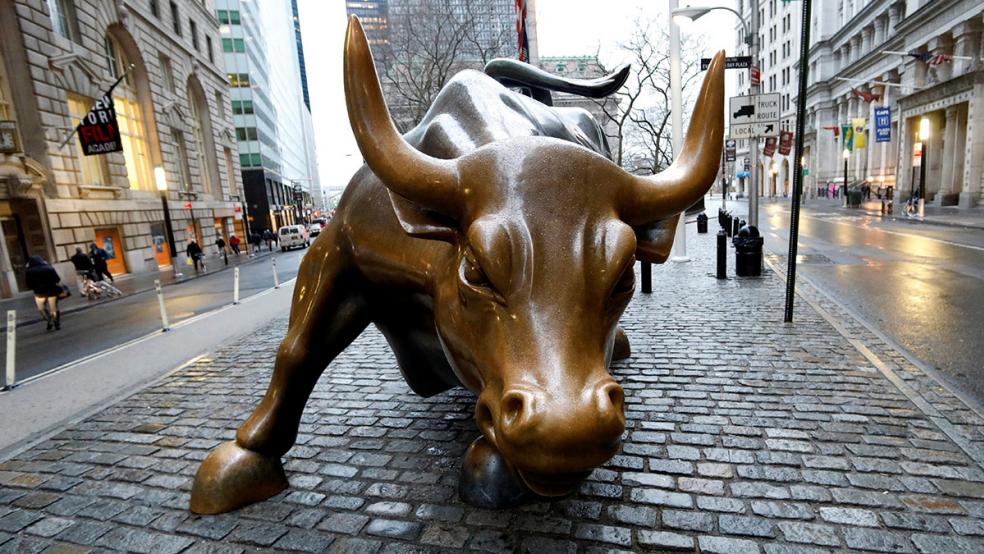Traders on Wall Street are placing their bets on a “blue wave” come Election Day.
While Joe Biden’s plan for higher taxes on business and the wealthy doesn’t sit well with many on Wall Street, Politico’s Ben White says the prospect of a substantial and well-targeted stimulus package outweighs those concerns. Investors are betting that Democrats can win control of the White House and both chambers of Congress, resulting in a new round of government spending worth as much as $3 trillion – enough to carry the economy until conditions can return to something like pre-pandemic levels.
“Far from panicking at the prospect of a Biden win,” White says, “Wall Street CEOs, traders and investment managers now mostly say they would be fine with a change in the White House that reduces the Trump noise, lowers the threat of further trade wars and ensures a continuation of the government spending they’ve seen in recent years.”
Alternative scenarios: Some Wall Streeters aren’t convinced that a Democratic sweep would be best and would prefer instead to see divided control in Washington to act as a brake on spending. “The thing I’m concerned about with the blue wave is that we go too far on fiscal support and we don’t act responsibly,” one executive told White. “A Biden win and the GOP holding the Senate would temper a lot of that. And everybody actually agrees that we need more stimulus.”
Divided government could have its downsides, though. Richard Bernstein, former chief investment strategist at Merrill Lynch, told White that Republicans maintaining control of the Senate “is the worst scenario because Washington will become like sclerotic Europe and get nothing done. Uncertainty will remain an investment theme. And deregulation likely reverses.”
A Trump win, on the other hand, could cause a powerful reaction on Wall Street, with traders celebrating the continuation of lower taxes and weakened regulations with a big jump in the markets. However, the run-up may not last, White says, as the prospect of heightened trade wars and a lingering pandemic chip away at investor confidence.




